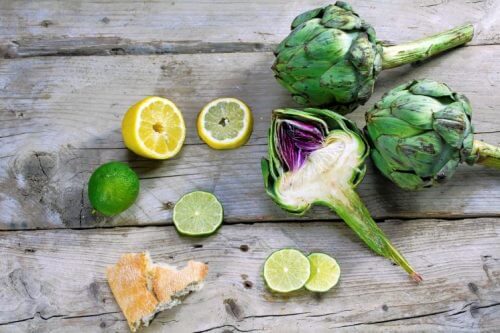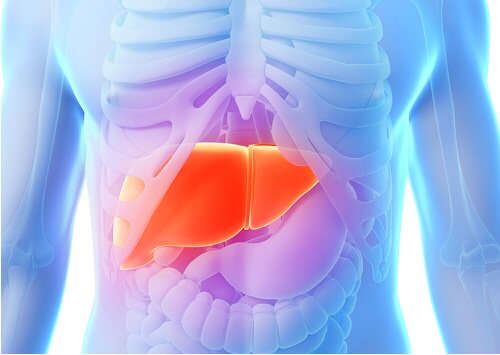This is What Happens to Your Body When You Start the Artichoke Diet


Written and verified by psychologist Valeria Sabater
The artichoke diet is good for more than just losing weight.
Something as simple as including one boiled artichoke per day and the water in which you boiled it in your weekly diet can bring you some surprising benefits.
Also Read: If You Want to Lose Weight, Don’t Forget Dinner
On the other hand, it should be emphasized, that this diet doesn’t require you to consume this vegetable exclusively over a specified period of time.
The secret is to maintain a varied and balanced diet. It should be as natural as possible, free of saturated fats and refined flour. Artichokes should be included in your daily diet cooked in different ways.
We will further explain how to do it and the big changes you will begin to notice after just a few days.
We are certain that this information will be very useful to you.
What does the artichoke diet involve?

- White tea, toast with avocado and tomato, half a papaya.
- Coffee, a bowl of papaya, plain yogurt with nuts
- Grapefruit juice and scrambled eggs with spinach, and nuts.
Options for Lunch
- Artichokes with brown rice. One apple.
- Artichoke soup with turkey breast. One mango.
- A salad with spinach, arugula, and strawberries. An artichoke with vinegar and lime.
- Grilled artichoke, endive salad, lettuce, pomegranate, low-fat cheese, raisins, and a dash of lime.
Options for Dinner
In whatever alternative we choose we should, first of all, boil one artichoke with a glass of water and a squirt of lime.
Then, we can choose from the following:
- Salmon and wild asparagus. Baked apple.
- Baked eggplant. Pear jam.
- Zucchini soup, celery salad with green apple, and nuts.
- Grilled chicken breast with Brussels sprouts.
What you will notice at the end of one week

A stronger immune system
Artichokes are known as a superfood. They contain multiple phytonutrients and antioxidants as potent as those that are present in dark chocolate, cranberries, and red wine.
Also Read: Four Superfoods for Eye Health
Anthocyanins such as the quercetins that are found in this vegetable, can greatly strengthen the immune system.
Better digestion
After two days of following the artichoke diet, you will notice you will have better digestion.
- Artichokes are a good remedy for indigestion and upset stomach.
- Moreover, one of its best and well-known components is cynarin, which increases the production of bile. This helps to stimulate the movement of foods and their residue through the intestines and reduce the feeling of bloat. It is fabulous.
- On the other hand, a marvelous aspect is the inulin it provides, a type of fiber that acts as a prebiotic. It’s a good idea to increase the number of “healthy bacteria” in the intestines.

Artichokes are very effective to reduce the level of lipids such as bad cholesterol or LDL.
Furthermore, we add their great number of antioxidants, its purifying and anti-inflammatory properties, and we will understand why this vegetable is so beneficial for our liver.
- The two most powerful phytonutrients in artichokes are cynarin and silymarin.
- These two elements tend to stay in the water after boiling the artichokes, which is why it is necessary that we consume the water as part of this healthy diet.
Regulate your blood pressure
Foods rich in potassium, such as bananas, celery, and artichokes help you maintain a healthy balance of electrolytes in your body.
Additionally, artichokes are also rich in magnesium, an essential mineral to reduce the damaging effects of excess sodium, something that is vital in reducing blood pressure.
Lose weight the healthy way with the artichoke diet
Something to keep in mind is that there is no magical food that will solve all your problems.
- What we do have are foods that support the systems that can help us in the weight loss process.
- Artichokes are vital because they improve your digestion, and help you break down the most resistant fat.
- As a result, they protect the liver, are diuretics, and regulate the blood sugar level.
Protect your brain with the artichoke diet
This fact, without a doubt, will interest you: artichokes are rich in Vitamin K. This is a very important component for cerebrovascular and cognitive health.
Thanks to vitamin K we can protect ourselves from neuronal damage and degeneration, as well as minimize the possibility of developing illnesses such as dementia, Parkinson’s, and Alzheimer’s.
In conclusion, as you can see, all these benefits are marvelous as well as interesting.
However, remember: the artichoke diet should always be accompanied by a balanced diet free from saturated fats and refined flours.
Will you try it today?
All cited sources were thoroughly reviewed by our team to ensure their quality, reliability, currency, and validity. The bibliography of this article was considered reliable and of academic or scientific accuracy.
Llorach, R., Espín, J. C., Tomás-Barberán, F. A., & Ferreres, F. (2002). Artichoke (Cynara scolymus L.) Byproducts as a potential source of health-promoting antioxidant phenolics. Journal of Agricultural and Food Chemistry. https://doi.org/10.1021/jf0200570
Ernst, E. (2010). Mosby’s Handbook of Herbs and Supplements and their Therapeutic Uses. Focus on Alternative and Complementary Therapies. https://doi.org/10.1111/j.2042-7166.2003.tb03767.x
Öngel, K. . b. (2006). Vitamin E: An antioxidant vitamine [Antioksidan bir vitamin: E vitamini]. SENDROM.
Roghani-Dehkordi, F., & Kamkhah, A. F. (2009). Artichoke leaf juice contains antihypertensive effect in patients with mild hypertension. Journal of Dietary Supplements. https://doi.org/10.3109/19390210903280207
This text is provided for informational purposes only and does not replace consultation with a professional. If in doubt, consult your specialist.








